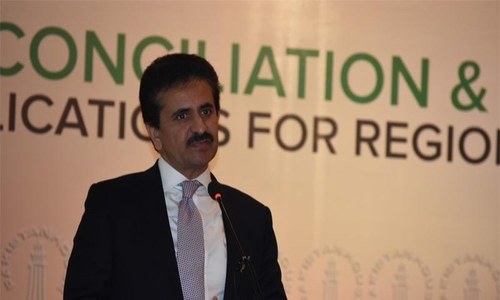WHILE the right-wing BJP government in New Delhi has tried to brush the Kashmir issue under the carpet, there is no denying the fact that this is the key obstacle to peace in South Asia. If the Kashmir question is resolved as per the demands of justice, and most importantly, as per the wishes of the Kashmiri people, the temperature in this region is likely to come down very quickly, leading to better relations between India and Pakistan.
Prime Minister Imran Khan during his recent visit to Sri Lanka has stressed this point, telling a conference in Colombo that “my dream for the subcontinent is that we resolve our differences” and that “we want ... the Kashmir dispute to be resolved according to” the UNSC resolutions.
However, a just resolution of the Kashmir question requires an end to the brutal tactics that India has unleashed in the disputed region, as well as accountability and punishment for those who have violated the people’s fundamental rights. This point was rightly raised by Human Rights Minister Shireen Mazari while addressing a session of the UN’s Human Rights Council.
In particular, Dr Mazari slammed the double standards of the self-declared global champions of human rights, who have preferred to keep quiet on the Kashmir issue, even after India stepped up its repressive tactics following the scrapping of the region’s special status in the Indian constitution. They have chosen to “prioritise political, strategic and commercial interests over human rights” she observed, while asking the global community to “stand ... on the right side of history” and call out the grave abuses in India-held Kashmir.
Indeed, many in the West do not lose a moment to castigate geopolitical rivals — China, Venezuela, Iran, North Korea, for example — over real and perceived violations of human rights. However, the violations of clients and partner states are conveniently overlooked, as these states are needed to advance geopolitical agendas, and human rights concerns appear to be expendable. If peace is to come to South Asia, then the brutal human rights violations in IHK must end forthwith, and New Delhi accept the fact that it has perpetrated decades-long abuse in the occupied region.
Once this is done, a framework needs to be created to help resolve the dispute involving the three main stakeholders — Pakistan, India and the Kashmiris. If New Delhi keeps on claiming that Kashmir is an internal issue — it clearly is not, as per the UN — then peace will be difficult to achieve. India’s foreign allies can play a major part in promoting peace by letting New Delhi know that the status quo in the occupied region is not okay, and that multi-stakeholder dialogue can lead to an end to the imbroglio. If India continues to be pampered and the Kashmiris’ plight ignored, peace in South Asia will remain a distant dream.
Published in Dawn, February 25th, 2021














































